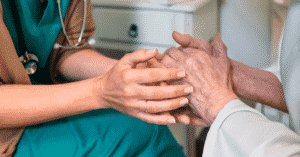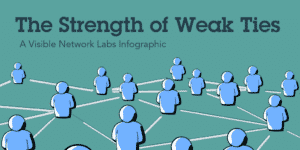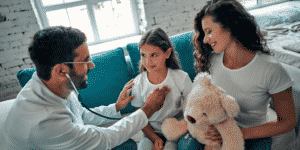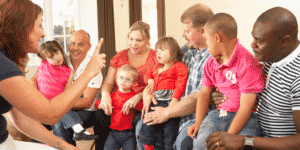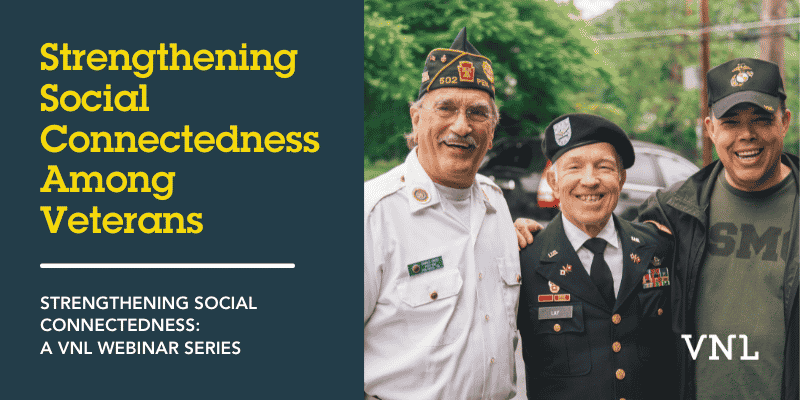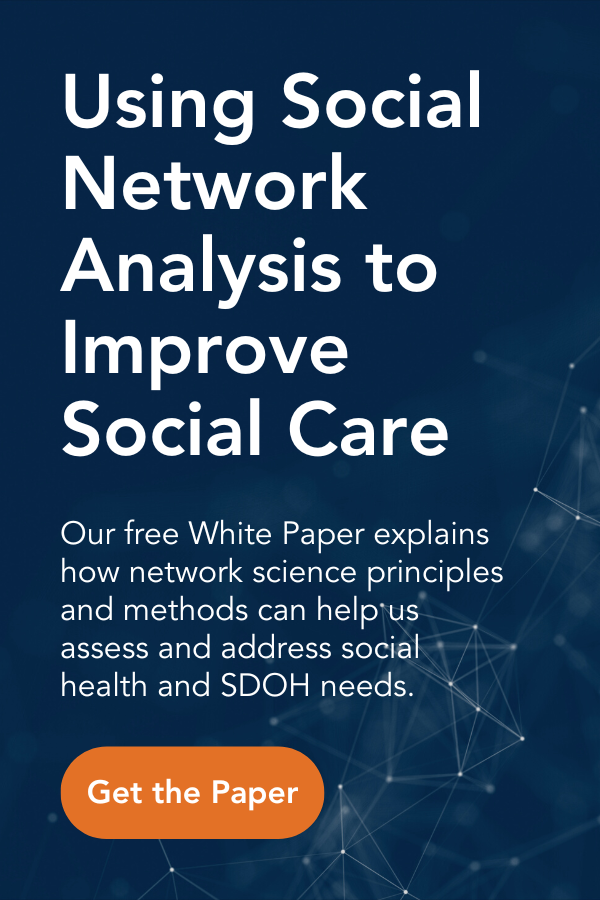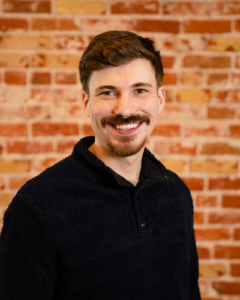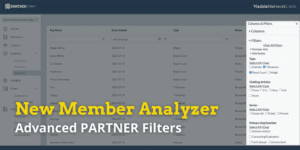Webinar Recap: Strengthening Social Connectedness Among Veterans
On May 25th, 2022, our Strengthening Social Connectedness Among Veterans webinar went live. Social connectedness plays an important role in the health and well-being of Veterans. From physical health and wellness to mental health issues like depression, PTSD or suicide, providing strong social support is a demonstrated way to improve outcomes across the board. However, despite the evidence, very few programs exist specifically to measure and strengthen social connectedness among Veterans.
We were fortunate to be joined by an expert panel of Veterans, researchers, and advocates. Our panelists were:
- Daniel Descieux, U.S. Army Veteran, 2010-2014 – Operation Enduring Freedom
- Dr. Bryann DeBeer, Director of the VA Patient Safety Center of Inquiry – Suicide Prevention Collaborative
- Evan Owens, Executive Director – REBOOT Recovery
- Shaquanna Riley, Associate Director – Combat Female Veterans Families United, U.S. Air Force Veteran of 20 years
Hosted by Visible Network Labs’ Founder & CEO, Dr. Danielle Varda, the webinar featured discussions on serving at home and abroad, research on social support for Veterans, and programs that are currently assisting Veterans in need. Read on to learn more.
Daniel Descieux, U.S. Army Veteran
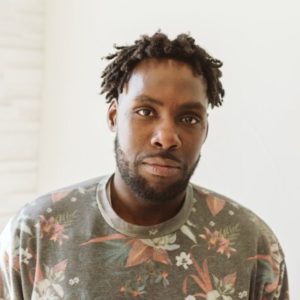
Daniel’s Military Occupational Specialty was 11 Bravo, or Infantry, which led him to the front lines. When summer took hold and temperatures routinely reached triple digits, Daniel said “We were always fighting. We used to get in firefights on a daily basis, six, seven times a day. Sometimes it would be a quick pop-shot here or there, to basically see if we were paying attention, and sometimes we would get in intense firefights for hours at a time.” Stationed at a company sized operating base which housed two Platoons and a support team, Daniel and his Platoon would regularly patrol the area, while the other Platoon would stay back and guard the operating base.
Speaking on the importance of social support to a Veteran, particularly when transitioning back home, Daniel said “It’s very important. The way they train us to be effective overseas is to pretty much just shut down any kind of feelings, and just focus on the mission. It’s hard to switch that off. A lot of times, I’ve met people and in our conversations I can say things that can come off cold in a way. It can be hard to feel sometimes. Building good social support and learning social cues that can help you get by in life is incredibly important.”
Dr. Bryann DeBeer, Dept. of Veterans Affairs
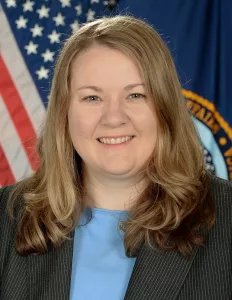
Upon joining the VA, Dr. DeBeer employed the knowledge she gained from her undergraduate and graduate studies on social cognition, social support and how overt mental health symptoms can impact one’s social experiences, to help reduce Veteran suicide.
“We know that (lack of) social support is a risk factor. But one of the huge limitations of the research that we’ve done in the past is that we don’t have good measures of social support, so we do a lot of work around perceived social support. That’s where VNL comes in. They have great methods of social network analysis that are accessible to researchers. I’ve really appreciated partnering with them to better understand how social support networks can help to impact Veteran mental health and suicide risk.”
Dr. DeBeer’s presentation showcased insights that were garnered throughout the pandemic using VNL’s PARTNERme screening tool. From the beginning of the pandemic to early 2021, Veterans were asked about newly identified pressing concerns on a list of determinants of health areas, like healthcare, food, and transportation, among many others. What was sadly evident from mapping Veteran’s social networks was that many don’t have, or feel that they don’t have people in their life that they can rely on for needs that can exacerbate mental health issues. For example, 65% of Veterans surveyed didn’t feel that they had anyone to turn to for mental and behavorial health needs. To watch Dr. DeBeer’s presentation and findings, click here, or visit our YouTube page.
Evan Owens, REBOOT Recovery
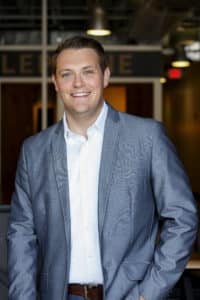
While working at Vanderbilt University Medical Center, Dr. Owens was recruited to build a mild traumatic brain injury clinic, which was later renamed The Center for The Intrepid. She was put in charge of the Return To Duty (RTD) program, which involved caring for soldiers injured in combat. Many of the soldiers who came through the RTD program wished to redeploy quickly, but in order to do so, they were required to undergo intense physical and mental tests to ensure that they were ready to return into combat.
At the time, Evan was running a software company, but would hear Dr. Owens come home each day with inspiring, and heartbreaking stories of what the soldiers in her program were going through. Evan and Dr. Owens realized that many of the conversations that wounded Veterans were interested in having were not things typically discussed in medical offices; existential topics like good and evil, faith, and the circumstances of life, death, and everything in between.
Dr. Owens noticed gaps in the care that was provided, especially a lack of peer-to-peer support. They noticed that even though spending and awareness around the topic of Veteran support were growing, so were adverse outcomes like Veteran suicide and PTSD. Evan and Dr. Owens started to host events at their house with Veterans and others struggling with mental health, having open dialogue about trauma, “moral injuries”, and other difficult topics. At first, the Owens’ sat, listened, and provided a lot of spaghetti – but attendance grew each night, which led to officials at Fort Campbell, a military base close to the Owens’ home, to call and invite them on to base to hold their gatherings there.
The first few weeks were incredibly popular – at one point, Evan estimated that 50-60 families were showing up on a Monday night at the base. While REBOOT Recovery is a Christian faith-based organization, the Owens’ made a point to accept all backgrounds, walks of life, and attitudes: “If you want to sit in the corner with your sunglasses on, with your arms crossed, and not say anything and act like you’re pissed to be there the whole time, that’s cool, we’re just grateful you’re here.” Evan said.
In 2015, the Owens’ both quit their jobs to make their vision of “mobilizing the largest peer-led response to suicide ever built” a reality. REBOOT Recovery began to expand across the country, and has been growing ever since. To watch Evan’s full presentation, watch the webinar here, or visit our YouTube page. For more information on REBOOT Recovery, visit rebootrecovery.com
Shaquanna Riley, U.S. Air Force Veteran, CFVF United
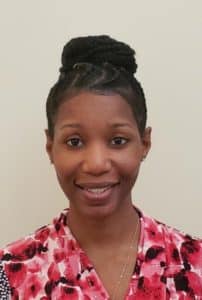
CFVF United was born in 2017, from Executive Director Sandra Robinson’s career as a nurse for the U.S. Army. Sandra noticed that female Veterans seemed to have been forgotten, and their experiences largely misunderstood when compared to male Veterans. There also did not seem to be as much support and understanding for female Veterans as they transitioned out of the military into civilian life as well, a crucial and difficult time for any Veteran.
Shaquanna and CFVF United have designed and implemented outstanding programs that help support female Veterans both at home and abroad. The care and insight built into the programs could have only come from Women who lived through deployments, combat, being stationed far from home, and who understand the unique challenges that female Veterans face when transitioning back home. Some programs that Shaquanna and CFVF United offer are:
- Combat Female Deployment Project: Assists Women who are currently serving in combat warzones. They are far from home, dealing with incredibly intense and stressful situations, and some do not have a support network back home. CFVF United links with them through social media, personal connections or other means, and offers support, encouragement, as well as sending care packages of familiar snacks from home and clothing articles.
- Economic Crisis Program: When a female Veteran transitions to civilian life, it is a whole new world. Shaquanna can vouch: “I can definitely speak on this after serving for 20 years, you get used to a certain lifestyle. It is a lifestyle. There are certain things you don’t have to worry about, like when you’re sick, you call the doctor and go. We don’t have co-payments, or having to contact the VA and submit paperwork, showing your military paperwork, or submitting benefits numbers. It’s just different now, going to a VA doctor or a civilian doctor. Getting a job, or shopping for clothes, when you’re used to wearing uniforms all the time.” Things like childcare are also a huge challenge when transitioning as well, when there was free or reduced cost child care on base, as Shaquanna found out when transitioning with three children. The Economic Crisis Program helps female Veterans obtain funds for clothing for job interviews, helps them navigate the internet, write resumes, and assists financially whenever possible to help with a smoother transition.
- Sheroes Peer Support Group: Unfortunately, too many female Veterans experience sexual trauma at some point in their lives or careers. Upon leaving the military, it is common for female Veterans to have PTSD from these experiences, as sometimes reports or cries for help are ignored, mishandled, or forgotten. “A lot of times in the military, they’re pushing towards the mission, and when you’re in a combat warzone, (sexual abuse) is definitely something that is pushed aside, as something ‘we can handle when we get back home’, and that isn’t the way to address that.” Shaquanna said. The Sheroes Peer Support Group brings female Veterans together to share what they went through, with the support, guidance, and care of Women who understand deeply the hurt and pain that result from extremely difficult and upsetting situations. Healing comes as Sheroes feel comfortable to express what they’ve gone through in a loving community of peers.
To watch Shaquanna’s full presentation, click here, or visit our YouTube page. For more information on Combat Female Veterans Families United, please visit their website.
Register for Our Upcoming Webinars!
We thank and appreciate our panelists for sharing their thoughts with out audience, and we extend our utmost gratitude to Daniel and Shaquanna for their service. Throughout 2022 and beyond, increasing and strengthening social connectedness are top of mind at Visible Network Labs, and we hope you’ll join us for poignant discussions and insights from experts doing work in the field.
On June 29th, 2022 at 12pm MT, we’ll be hosting a webinar focused on Strengthening Social Connectedness in the Criminal Justice System, and how it relates to families, children, and relationships. View our Social Connectedness Webinar Page to sign up for our upcoming webinars, and to access a complete archive of past recordings of our 2022 webinars.
Be sure to stay tuned to our Visible Us Blog for more product updates and VNL Team content!
About the Author: Will Jacobson
Will Jacobson is the Business Development Representative on VNL’s Marketing and Communications Team. Originally from New York City, Will loves living in Colorado and all the outdoor life it has to offer. He’s also a pretty big foodie!
|
|
Thank you for Signing Up |

More Social Care Resources
